What Is a Loan Estimate?
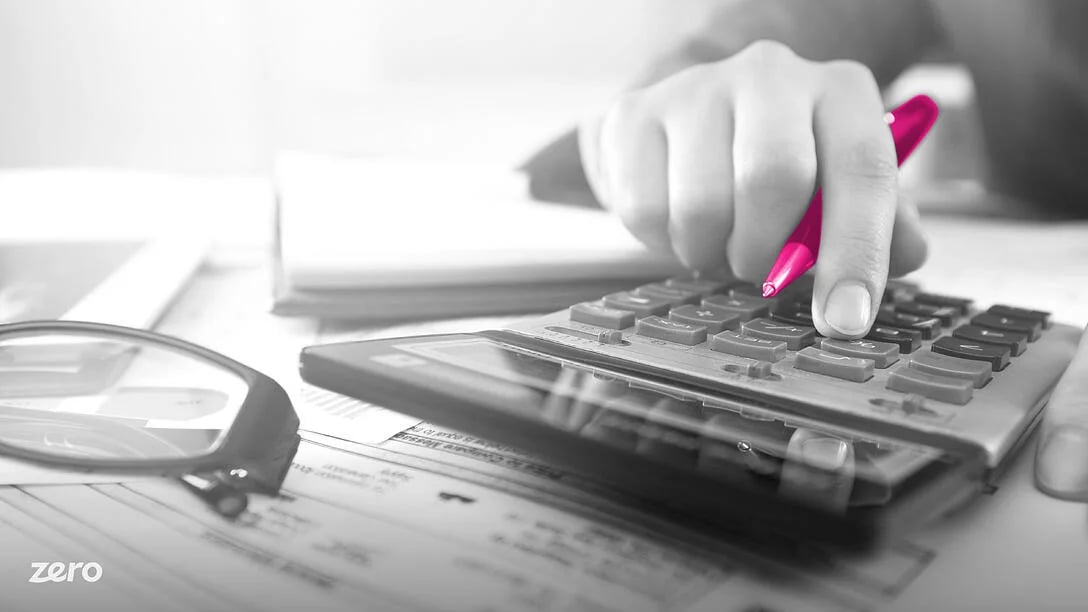
A loan estimate is crucial to obtain when looking for a loan. This estimate not only gives you the details of a mortgage but also compares offers from different lenders to determine which loan is best suited for you. Here’s an overview of what you’ll find on your loan estimate and how it can help you choose the best mortgage option.
Read our complete beginner's guide to buying a house here.
What Is a Mortgage Loan Estimate?
After you’ve submitted a mortgage application to a mortgage lender, they will send you a loan estimate. This three-page document details every part of the mortgage offer: the loan type, interest rate, the process of payment for the principal and interest, and other upfront fees along with the down payment.
Having a loan estimate is crucial since you can compare the numbers on different offers prior to accepting one. In some cases, you can even leverage a loan estimate from one lender to argue for a better deal from another.
What Information Appears on a Loan Estimate?
There’s a lot of information to digest on the three pages of a loan estimate. However, it’s important to read it over quickly to get the ball rolling on moving forward in the home-buying process.
Loan Terms
These terms cover what type of loan you’re applied for and what conditions apply to it.
- Type of Loan: Loan terms differ depending on what type of loan you applied for. For example, an FHA loan typically requires 3.5% down and charges slightly lower interest rates than conventional loans. Additionally, if you’re eligible for a VA loan or want to change the maturity date of your loan, this will affect your interest rate and penalties that apply.
- Interest Rate: Within the loan terms, it will explain in detail the interest rate that the lender wants to charge. For example, a fixed-rate loan will have the same interest rate over the lifetime of the loan, whereas an ARM (adjustable-rate mortgage) will have a rate that fluctuates with national rates. ARM loan estimates will include additional information on how your interest rate will change over time.
- Purpose of the Loan: The loan purpose is essentially depicting what the loan will be used for, whether for purchase or refinance. Moreover, the loan purpose plays a large factor when it comes to the interest rates and payment terms as well.
- Prepayment Penalties and Balloon Payments: Within your loan terms it also includes information about the end of your loan (which is important even if it feels like a long way off). Some loans include prepayment penalties which will apply if you want to pay off the loan in a shorter time frame. Others have balloon payments, which have lower initial monthly payments but require a much larger payment towards the end of the loan.
Projected Payments
A second section of the loan estimate will detail the projected payments of the mortgage. This details the different fees that make up your monthly payments.
- Principal and Interest: For a fixed-rate loan, your monthly payments are fixed, meaning the amount of the principal and interest you pay are the same over time. However, if you choose an ARM loan, these series of payments change over time due to interest rate fluctuations.
- Mortgage Insurance: Many types of loans include a monthly mortgage insurance payment (which is different from homeowner’s insurance) that helps insure your loan in the case that you default on future payments. This will appear as an additional monthly fee.
- Taxes and Insurance in Escrow: Most lenders will require something called escrow, which is an account held by a neutral third party for your homeowner’s insurance and property taxes. By having oversight and access to this account, lenders can make sure that you are making these payments on time. Payments towards escrow will often be made as a part of your overall monthly payment and will be deposited by the lender into the escrow account, from where it is distributed to homeowner’s insurance and property tax payments.
Closing Costs
This section of the loan estimate details the closing costs that come with the loan, which includes your down payment and fees. These costs will have to be paid on the closing date, so it’s important to know that you’ll be able to have enough cash on hand to cover them.
- Cash to Close: Your “cash to close” is determined by the amount of fees that have to be paid on the date of close. This includes your remaining down payment balance, initial payments to escrow, and origination fees.
- Fees: Your mortgage comes with a handful of payments that vary by lender. Some of these are due directly to the lender, while others go to the third-party insurance or title fees.
Fees that go to the lender are known as fees that you can’t shop for. They include the cost of appraisal, credit report, and tax monitoring that the lender carried out for your specific loan.
However, there are other fees that can be shopped around for. This means that you can compare rates and terms which mostly involve your property’s title search and policy
We wrote a blog all about the unexpected costs that may come with a mortgage, read it here!
Comparisons
On the third page of the loan estimate, you’ll find breakdowns of how interest and principal will be paid off throughout the loan along with the estimate’s APR and TIP.
An APR rate is the sum of your interest rate and all of the additional fees charged by the lender. APRs are calculated the same way for each lender, allowing you to quickly compare rates when you have multiple offers.
Similarly, the TIP (Total Interest Percentage) is a percentage that shows the total amount of interest paid throughout the loan’s lifecycle. Longer loan terms will have larger TIPs, making this another valuable tool when comparing loan options.
Other Considerations
The last section of the loan estimate is titled “Other Considerations.” This section includes crucial information about other requirements that come with the loan such as the terms to refinance, insurance standards, and late payment penalties. Evidently, this section does differ by lender and could be a good indicator of if the loan is the right fit for you.
How to Get a Loan Estimate
To get a loan estimate, you’ll have to provide the lender with information concerning the property you’re interested in, your proof of funds or employment, and your financial history on a mortgage application. The application will take some time to fill out and will require official documentation including your social security number, tax records, income statements, and record of debt.
Loan Estimate vs Closing Disclosure
It’s important to know that your loan estimate, while detailed, still only provides approximate numbers and is not an official record of the payments and rates associated with the loan.
When you decide to move forward after looking through the loan estimate, your lender will send a closing disclosure three days before your closing date. This is so you have enough time to look over the final numbers and ask any follow-up questions
Our Mortgage Learning Center features blogs on a wide range of mortgage and refinancing topics.
Using Your Loan Estimate
What is a mortgage loan estimate? Essentially, it’s an approximate breakdown of all of the numbers that affect your monthly payments and your closing costs. This includes anything from how the principal and interest are paid off over time to the taxes that will be held in escrow from your monthly payments.
An estimate gives you the opportunity to compare a mortgage with other options to find out which set of payments and fees works best for you.
Ready to Begin an Application?
This page last updated: October 13, 2022
Read more on this topic below.

When you buy a house and start making mortgage payments, your payment consists of four different components, known...

If you have gone through the pre-approval process but need to take a deeper dive into how much house to buy,...

The vast majority of mortgage loans require you to put down a certain percentage of the selling price upfront....

Whether you’re a first-time buyer or you’ve purchased a home before, you’ve likely heard of a homeowner’s association....

People buy their homes for a number of reasons. Affordability, stability, and comfort are some of the most...

Mortgage brokers play an integral and active role in the mortgage market, offering customers a service not made...
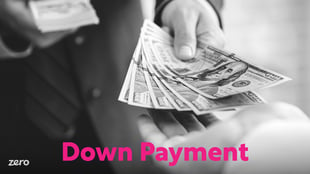
There’s a lot of expenses to keep in mind when you’re thinking about buying a home. Between the price of the home, property taxes, your mortgage...

Conventional loans are mortgages offered by private lenders, banks, and institutions that are not backed by the government. Unlike FHA, USDA,...

Some homebuyers refuse to purchase a property if it is part of a property owner association. On the...

Research indicates that 58% of homeowners in HOA communities and single-family homes pay an average monthly fee...

Private mortgage insurance is something millions of homeowners pay for each year. However, this type of insurance does not protect

When you first set out to buy a home, it can feel like you’re taking an exam you forgot to study for. You have to make quick...

When looking to refinance or buy a house, the pre-qualified vs pre-approved mortgage debate can be...

A mortgage is often the largest monthly expense homeowners pay. The thought of reducing the amount...
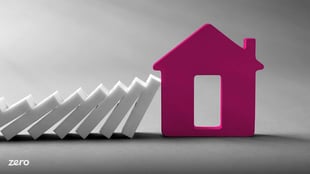
A home doesn’t just fall into foreclosure status. There are stages and processes that take place behind the scenes before...

It’s likely that your mortgage loan will be the largest loan you have during your lifetime. Mortgages are not a one size...

Refinancing your home can save you thousands of dollars per year! When you extrapolate that savings over...

For many people, owning a home is part of the American dream. To make this dream a reality, most people will take out a...

Whenever you’re looking to buy a house, you’ll quickly realize there are a lot of fees associated with obtaining a mortgage....
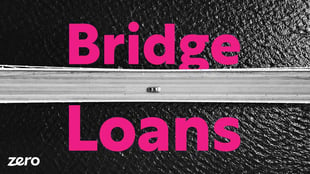
A bridge loan is a short-term loan a borrower may use while a more long-term financing contract is finalized. Bridge...

There are many moving parts and various people you’ll deal with throughout the homebuying process....

If you’re looking to buy a house, and do not have a mountain of cash saved up, you’ll need to consider getting a mortgage to help you finance this...

If you find a property that you’re highly interested in buying but are concerned that the seller might choose...

Buying a home? You’ll likely need to get it appraised before you receive the clear to close. If you’re wondering...

If you’re an active service member, a veteran, or the surviving spouse of a veteran, and you want to ...

There’s no doubt, COVID-19 changed the world in countless ways and took us all by surprise. From an...

Whenever you are borrowing money, whether it’s for a new mortgage, a refinance, credit card, or car loan, you’ll hear...
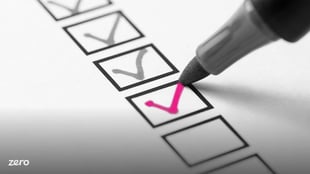
Refinancing can open up opportunities for homeowners to cash out on equity, reduce monthly mortgage payments, or renegotiate the interest...

The interest rate on a mortgage is simply the fee a lender charges the borrower for borrowing their money. Over the...

A cash-out refinance is the process of taking the equity you have built in your home in the form of a cash deposit into a designated account...

If you’re new to buying a home, you probably have quickly realized the overwhelming amount of options there...

Consider this scenario. You bought a house several years ago, and at the time, you thought you got a pretty great...

If you’ve already gone through the lengthy process of writing offers, securing financing, and arranging inspections for your...

One of the most important steps to buying a home is deciding on a mortgage loan and deciding on a loan involves settling on a good...

First time home buyers are often surprised when they learn about all of the expenses that are associated with ...

Purchasing real estate is not as simple as finding the right home, submitting an offer, and signing the closing paperwork; many...
